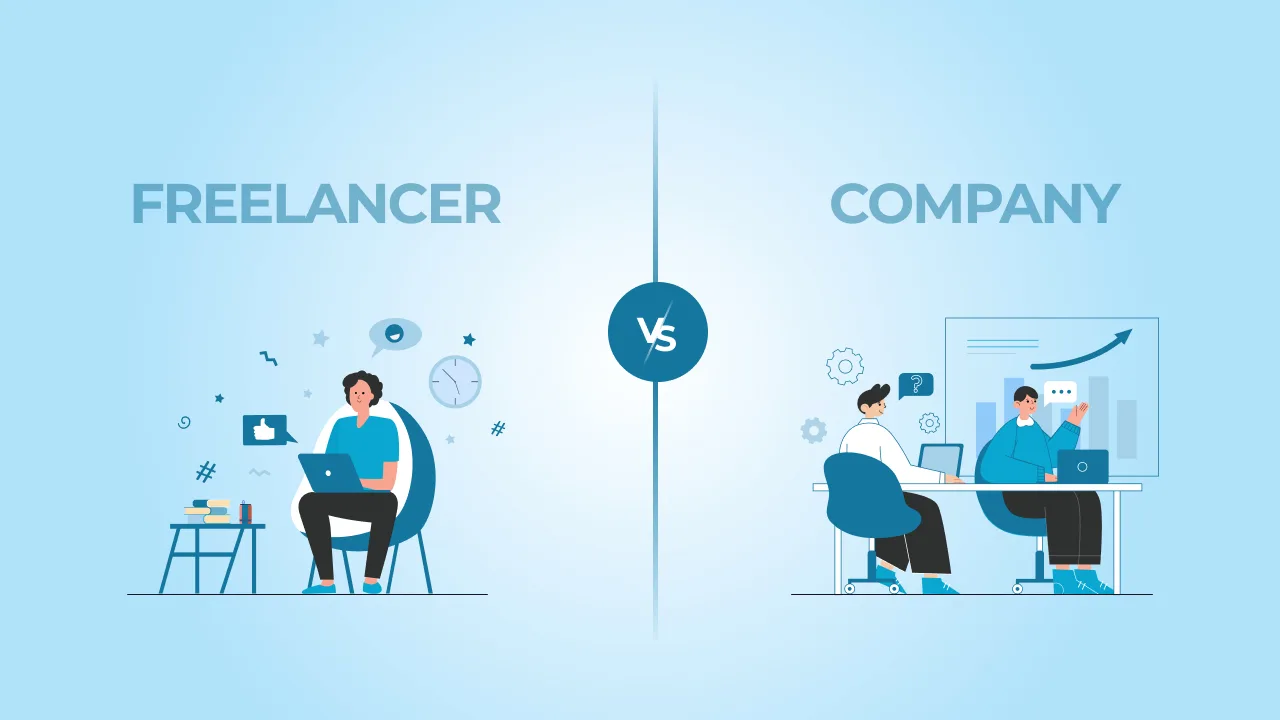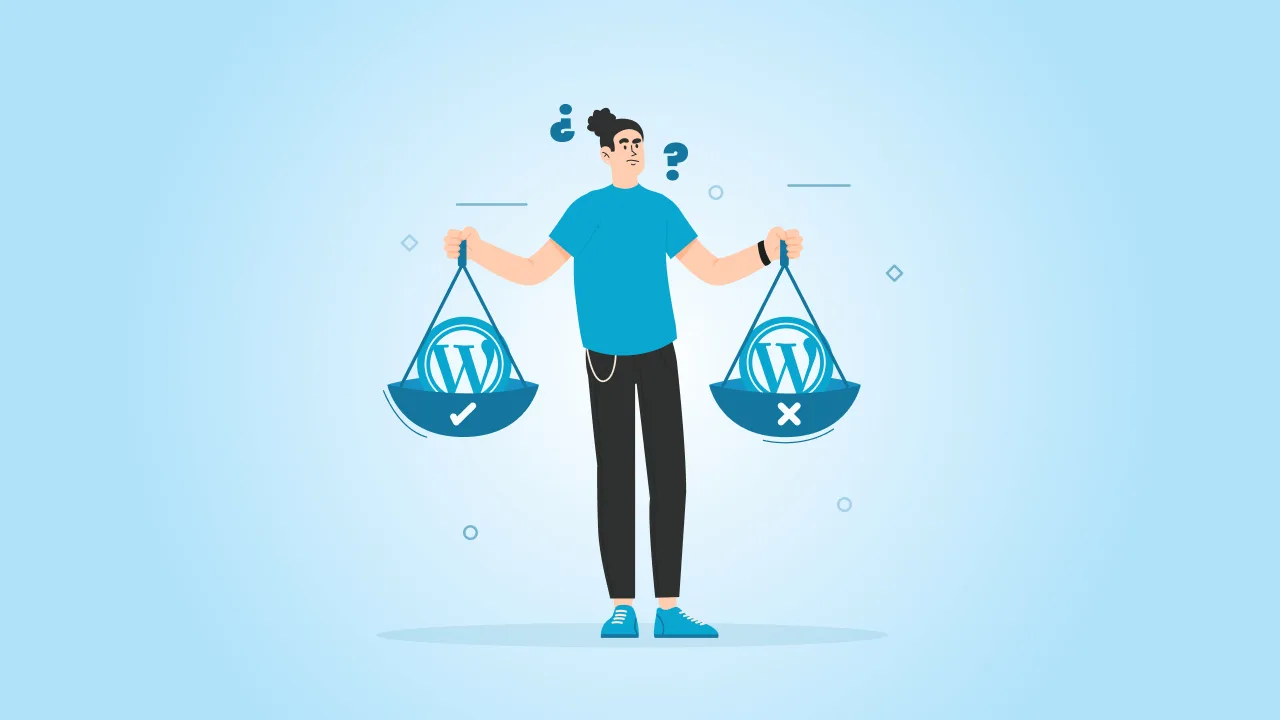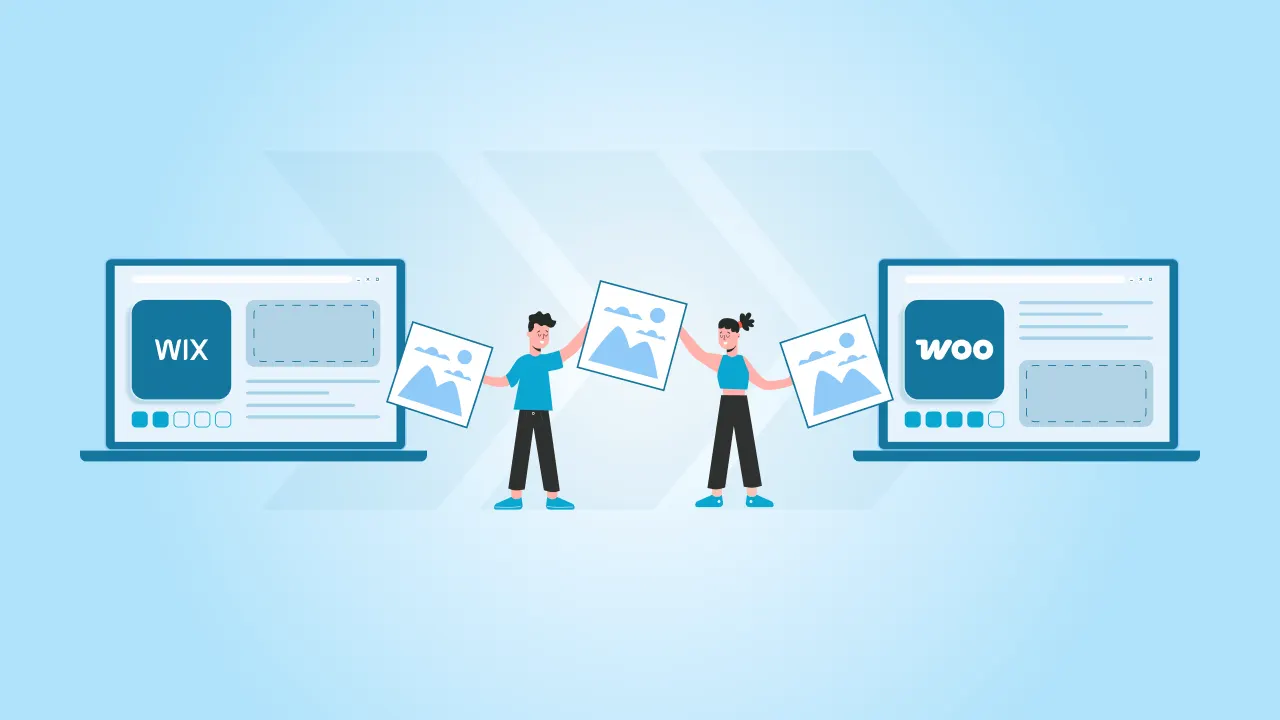Choosing the right CMS is extremely important as it directly affects how easily you can update your site, the features you can use, and your site’s overall performance. A good CMS will help you create a professional-looking website, improve your SEO, and offer the flexibility to grow as your needs change.
What to Expect?
- An overview of its features
- The pros and cons
- Who it’s best suited for
Whether you’re a beginner or an experienced web developer, this guide will help you find the perfect CMS for your needs.
What is a CMS?
Content Management Systems (CMS) are software applications that enable users to easily create, manage, and modify digital content. These platforms are designed to simplify building and maintaining websites, allowing users without technical expertise to manage their online presence efficiently. Whether it’s a blog, an e-commerce site, or a corporate website, a CMS provides the necessary tools to streamline content creation and management.
Let’s get started with the 15 best and most popular CMS options and their features.
| CMS Platform | Extensive Plugin/Extension Library | Customizable Themes | Multilingual Support | E-commerce Capabilities | Security Features |
|---|---|---|---|---|---|
| WordPress |  |
 |
Plugin Required | Plugin (WooCommerce) |  |
| Joomla |  |
 |
Plugin Required | Plugin Required |  |
| Drupal |  |
 |
 |
Plugin Required |  |
| Shopify |  |
 |
 |
 |
 |
| Wix | Plugin Required |  |
Plugin Required | Plugin Required |  |
| Squarespace | Plugin Required |  |
Plugin Required | Plugin Required |  |
| Magento | Plugin Required | Plugin Required | Plugin Required |  |
 |
| HubSpot CMS Hub |  |
 |
 |
Plugin Required |  |
| Ghost | Plugin Required |  |
Plugin Required | Plugin Required |  |
| TYPO3 | Plugin Required | Plugin Required |  |
Plugin Required |  |
| Webflow | Plugin Required |  |
Plugin Required | Plugin Required |  |
| Weebly | Plugin Required |  |
Plugin Required | Plugin Required |  |
| Contentful | Plugin Required | Limited |  |
Plugin Required |  |
| Sitecore | Limited | Plugin Required |  |
 |
 |
| BigCommerce |  |
 |
 |
 |
 |
1. WordPress
WordPress is the most popular CMS in the world, powering over 40% of all websites on the internet. It offers flexibility and customization options with thousands of plugins and themes. WordPress’s community support and frequent updates ensure security and reliability for users.
- Key Features
- User-Friendly Interface: Easy to set up and use, even for beginners.
- Extensive Plugin Library: Thousands of plugins are available to extend functionality.
- Customizable Themes: Wide range of free and premium themes to design your site.
- SEO-Friendly: Built-in SEO features and plugins to enhance search engine visibility.
- Large Community Support: Active community and abundant resources for help and tutorials.
- Regular Updates: Frequent updates to improve security and add new features.
Pros
- Highly flexible and customizable
- Large selection of themes and plugins
- Strong community support and extensive documentation
- Regular updates and improvements
- SEO-friendly features
Cons
- Can be vulnerable to security issues if not properly maintained
- May require additional plugins for advanced features, which can slow down the site
- Learning curve for complete customization and advanced functionalities
💡 Ideal For
☑ Bloggers and personal websites
☑ Small to medium-sized businesses
☑ E-commerce sites using WooCommerce
☑ News and magazine sites
☑ Portfolio and creative websites
📖 Also Read: Top 15 WordPress Development Companies to Try
2. Joomla
Joomla is a robust and versatile CMS known for its versatility and scalability. It is widely used for developing complex websites and online applications. Joomla offers a good balance between ease of use and functionality, making it suitable for both beginners and advanced users.
Key Features
- User-Friendly Administration: Intuitive interface for managing content and settings.
- Extensive Extensions Directory: Thousands of extensions available for added functionality.
- Powerful Content Management: Advanced content management options, including hierarchical structure and content versioning.
- Multilingual Support: Built-in multilingual capabilities for creating sites in multiple languages.
- Strong User Management: Advanced user management with multiple user groups and access levels.
- Template System: Highly customizable templates to design the look and feel of your site.
Pros
- Highly flexible and customizable
- Strong user and content management features
- Extensive library of extensions and templates
- Built-in multilingual support
- Active community and good documentation
Cons
- Steeper learning curve compared to some other CMS platforms
- Can be more complex to set up and manage
- Some extensions and templates may come at an additional cost
💡 Ideal For
☑ Medium to large-sized websites
☑ Online communities and membership sites
☑ E-commerce sites with complex requirements
☑ Multilingual websites
☑ Corporate and non-profit websites
3. Drupal
Considered a highly customizable CMS, Drupal is used by many large and complex websites, including government and enterprise-level sites. With a dedicated community of developers and contributors, Drupal offers a wide range of modules and themes for enhanced functionality. Its security features and frequent updates make it a reliable choice for enterprise-level websites.
Key Features
- Highly Customizable: Extensive API support for custom development.
- Advanced User Management: Granular control over user roles and permissions.
- Robust Content Management: Flexible content architecture with support for custom content types.
- Strong Security: Enterprise-level security features and regular updates.
- Multilingual Capabilities: Built-in support for creating multilingual sites.
- Scalability: Can handle large amounts of content and high-traffic sites.
Pros
- Highly flexible and customizable
- Strong security features
- Scalable for large and complex websites
- Robust content management and user management
- Extensive community support and documentation
Cons
- Steeper learning curve compared to other CMS platforms
- Requires more technical expertise to set up and manage
- Some modules and themes may have compatibility issues with updates
💡 Ideal For
☑ Large and complex websites
☑ Government and enterprise-level sites
☑ Educational institutions and non-profits
☑ Community and social networking sites
☑ Developers and organizations needing extensive customization
4. Shopify
Shopify empowers businesses to create customizable online Shopify stores without the need for extensive technical expertise. With a focus on simplifying the online selling process, Shopify offers a range of professional templates and tools to enhance the shopping experience. Its dedicated support team and robust analytics make it a go-to choice for merchants seeking a streamlined e-commerce solution.
Key Features
- Easy Store Setup: Intuitive interface for quick and easy store setup.
- Extensive App Store: Wide range of apps to extend functionality, from marketing to inventory management.
- Responsive Themes: Professional and mobile-friendly themes to create a beautiful online store.
- Secure Payment Options: Supports multiple payment gateways and ensures secure transactions.
- SEO and Marketing Tools: Built-in SEO features, email marketing, and social media integration.
- 24/7 Customer Support: Round-the-clock support through live chat, email, and phone.
Pros
- Easy to use and set up, no coding required
- Comprehensive e-commerce features
- Secure and reliable platform with excellent uptime
- Extensive app store for added functionality
- Strong customer support and extensive documentation
Cons
- Monthly subscription fees can add up, especially with add-ons
- Limited customization compared to open-source platforms
- Transaction fees unless using Shopify Payments
💡 Ideal For
☑ Small to medium-sized businesses looking to sell online
☑ Entrepreneurs and startups
☑ Businesses that want a hassle-free e-commerce solution
☑ Brick-and-mortar stores expanding to online sales
☑ Anyone looking for a reliable and secure e-commerce platform
5. Wix
Introduced in 2006, Wix is one of the early players in the market of user-friendly website-building platforms. It is a popular content management system that allows users to create and manage websites without needing coding knowledge. Wix also provides various tools and features for SEO optimization, e-commerce integration, and mobile responsiveness.
Key Features
- Drag-and-Drop Builder: Intuitive interface for building websites without coding skills.
- Wide Range of Templates: Hundreds of professionally designed templates for various industries.
- App Market: Extensive app market for adding functionalities like forms, galleries, and bookings.
- Mobile Optimization: Automatically optimizes websites for mobile devices.
- SEO Tools: Built-in SEO tools to improve search engine visibility.
- E-commerce Capabilities: Option to add e-commerce functionality for online stores.
Pros
- User-friendly interface, perfect for beginners
- Beautiful and responsive templates for quick customization
- App market for expanding functionality
- Mobile optimization ensures a seamless user experience
- Affordable pricing plans with free options are available
Cons
- Limited flexibility compared to open-source CMS platforms
- Once chosen, template change can be challenging
- Some advanced features may require third-party apps
💡 Ideal For
☑ Small businesses and entrepreneurs looking to establish an online presence quickly
☑ Creative professionals such as artists, photographers, and designers showcasing portfolios
☑ Anyone needing a visually appealing website without extensive technical knowledge
☑ Bloggers and content creators focusing on visual presentation
6. Squarespace
Squarespace CMS emphasizes responsive design, ensuring websites look great on any device. Additionally, it provides integrated tools for blogging, e-commerce, analytics, and more, making it a comprehensive solution for various website needs. The platform offers a variety of stylish templates to help users kickstart their website creation process.
Key Features
- Designer Templates: Elegant and professionally designed templates suitable for various industries.
- Drag-and-Drop Editor: Intuitive interface for customizing layouts and content without coding.
- Built-in Features: Integrated features such as blogging tools, analytics, and SEO optimization.
- Mobile Optimization: Ensures websites look great on all devices with responsive design.
- E-commerce Capabilities: Option to set up online stores with inventory management and payment processing.
- Customer Support: 24/7 customer support via email and live chat.
Pros
- Exceptional design aesthetics with sleek and modern templates
- User-friendly interface, making it accessible for beginners
- Integrated features for blogging, e-commerce, and SEO
- Reliable and secure hosting with good uptime
- Excellent customer support available round the clock
Cons
- Limited third-party integrations compared to some other platforms
- Higher cost compared to basic website builders
- Less flexibility in template customization compared to open-source CMS platforms
💡 Ideal For
☑ Creative professionals such as photographers, artists, and designers showcasing portfolios
☑ Small businesses and startups need a visually impressive online presence
☑ E-commerce businesses looking for an easy-to-manage platform
☑ Bloggers and content creators focusing on aesthetics and user experience
7. Magento
Offering a wide range of customization options, Magento allows users to tailor their websites to suit their specific needs. Magento provides a scalable solution suitable for businesses of all sizes, from small startups to large enterprises. Furthermore, Magento’s extensive marketplace offers a wealth of extensions and integrations to enhance the functionality of online stores even more.
Key Features
- Scalability: Handles large catalogs and high traffic with ease.
- Customization: Highly customizable with extensive flexibility for developers.
- Advanced Product Management: Supports complex product types and configurations.
- SEO Optimization: Built-in SEO features to improve search engine visibility.
- Multi-Store Management: Manage multiple stores from a single admin panel.
- Community and Enterprise Editions: Offers both free (Community) and paid (Enterprise) editions with additional features and support.
Pros
- Scalable and suitable for large e-commerce operations
- Extensive customization options for developers
- Rich in features for managing complex product catalogs
- Strong community support and active developer community
- Built-in SEO capabilities for improving search engine rankings
Cons
- Steep learning curve, requiring technical expertise to set up and manage
- Higher development and maintenance costs compared to simpler platforms
- Requires dedicated hosting and server resources for optimal performance
💡 Ideal For
☑ Medium to large-sized businesses with complex e-commerce needs
☑ Businesses with a large product catalog or multiple stores
☑ Developers and agencies looking to create customized e-commerce solutions
☑ Those willing to invest in a robust platform for long-term growth
8. HubSpot CMS Hub
HubSpot CMS Hub is a comprehensive content management system that seamlessly integrates with HubSpot’s marketing and sales tools for a unified approach to inbound marketing. It empowers users to build personalized, SEO-optimized websites that drive traffic and capture leads effectively. With its drag-and-drop editor and robust analytics, HubSpot CMS Hub simplifies the creation and management of engaging web content.
Key Features
- Integrated Marketing Tools: Seamlessly integrates with HubSpot’s marketing and sales software for a cohesive inbound marketing strategy.
- Drag-and-Drop Editor: User-friendly interface with a drag-and-drop editor for easy website creation and customization.
- SEO-Friendly: Built-in SEO tools to help improve search engine visibility and drive organic traffic.
- Analytics and Reporting: Robust analytics to track website performance, user interactions, and lead generation metrics.
Pros
- Offers a complete suite of tools for marketing, sales, and website management in one platform
- Easy to use, even for those without extensive technical knowledge
- Enables personalized content creation and marketing automation for targeted campaigns
- Seamless integration with other HubSpot tools for a unified marketing and sales strategy
Cons
- Can be on the higher end of the pricing spectrum, especially for smaller businesses
- Some users may find it challenging to fully utilize all the features without proper training
- While user-friendly, advanced customization may require technical expertise
💡
Ideal For
☑ Marketing teams looking to streamline their inbound marketing efforts with a powerful CMS
☑ Well-suited for medium to large businesses that require an integrated marketing solution
☑ Perfect for companies already leveraging HubSpot’s marketing and sales tools to maintain consistency in their strategies
9. Ghost
Ghost CMS is a headless content management system that prioritizes simplicity and content creation. It offers a clean and distraction-free Markdown editor for writers. With customizable themes and SEO, Ghost enables users to create visually appealing and SEO-friendly websites. Ideal for bloggers, writers, and small publishers looking for a streamlined platform focused on content creation.
Key Features
- Simple Markdown Editor: Allows for distraction-free writing using Markdown syntax for easy content creation.
- Customizable Themes: Offers a marketplace of themes and developer-friendly tools for easy customization.
- SEO and Performance Optimization: Built-in SEO features and fast performance for optimal search engine visibility and user experience.
- Membership and Subscription Support: Enables seamless integration with membership and subscription services for monetizing content.
Pros
- Prioritizes clean and intuitive content creation tools for writers and publishers
- With a lightweight codebase, Ghost offers fast page load times and strong SEO capabilities
- Extensible with a robust API and developer tools for advanced customization and integrations
Cons
- Compared to some other CMS platforms, Ghost may have fewer built-in features out of the box
- Extensive customizations may require technical expertise or third-party assistance
- The community around Ghost is smaller compared to giants like WordPress, which may impact available resources and support
💡 Ideal For
☑ Bloggers, authors, and content creators looking for a simple yet powerful platform to publish content
☑ Smaller publishers or niche publications seeking a streamlined and focused content management experience
☑ Creators interested in membership and subscription models to monetize their content effectively
10. TYPO3
An open-source content management system (CMS), TYPO3 is renowned for its scalability and flexibility. It offers a wide range of features, including multi-language support, extensive customization options, and robust security measures. With a dedicated community and regular updates, TYPO3 is a solid choice for large enterprises and organizations with complex website requirements. Its advanced capabilities make it suitable for creating sophisticated and high-performing websites across various industries.
Key Features
- Scalability: TYPO3 is highly scalable, and capable of handling large and complex websites.
- Customization: Offers extensive customization options for tailored website development.
- Multilingual Support: Built-in support for creating multilingual websites.
- Security: Robust security measures to protect websites from vulnerabilities.
Pros
- Allows for extensive customization and tailored solutions
- Supported by a dedicated community of developers and users
- Emphasizes security with frequent updates and measures against vulnerabilities
Cons
- Steeper learning curve compared to some other CMS platforms
- More resource-intensive in terms of setup and maintenance
- Not as widely known or used as some mainstream CMS options
💡 Ideal For
☑ Large businesses and organizations with complex website requirements
☑ Companies needing multilingual support for their websites
☑ Developers looking for a highly customizable and scalable CMS
☑ Users prioritizing strong security features in a CMS
📖 Also Read: TYPO3 vs WordPress: Pros, Cons & Comparison
11. Webflow
Webflow is a powerful visual website builder that allows users to design and launch websites without writing code. It offers responsive design, customizable templates, and a user-friendly interface for creating professional websites. Ideal for designers, agencies, and small businesses looking to build custom websites with ease and precision. Many Webflow development agencies use its robust features to create unique, scalable websites that meet their clients’ needs.
Key Features
- Visual Design: Webflow provides a visual design interface for building websites without code.
- Responsive Design: Ensures websites are optimized for various devices and screen sizes.
- Customizable Templates: Offers a range of templates that can be easily customized to suit different needs.
- Hosting Integration: Seamless integration with Webflow hosting for easy deployment of websites.
Pros
- Users can create professional websites without needing to write code
- Provides extensive control over the design and layout of websites
- Websites built on Webflow are automatically responsive and mobile-friendly
- Simplifies the process by offering integrated hosting services
Cons
- Users may need time to familiarize themselves with the platform’s features
- E-commerce capabilities are not as robust compared to dedicated platforms
- Some users may find the pricing plans relatively higher for their needs
💡 Ideal For
☑ Designers wanting full creative control over website design
☑ Small businesses looking to create professional websites without coding
☑ Entrepreneurs wanting to quickly launch a visually appealing website
☑ Content creators seeking a visually engaging online presence
12. Weebly
Weebly is a user-friendly website builder that offers drag-and-drop functionality for creating websites quickly and easily. It provides customizable templates, a built-in e-commerce platform, and SEO tools for enhancing online visibility. Ideal for small businesses, entrepreneurs, and individuals looking to establish an online presence without technical expertise.
Key Features
- Drag-and-Drop Builder: Easy-to-use interface for building websites without coding.
- Customizable Templates: Variety of templates to personalize website design.
- Built-in E-commerce: Integrated e-commerce platform for setting up online stores.
- SEO Tools: Tools to optimize website content for search engines.
Pros
- Easy for beginners with its intuitive drag-and-drop functionality
- Convenient platform for creating and managing online stores
- Cost-effective solution for individuals and small businesses
- Built-in tools to improve website visibility on search engines
Cons
- May have restrictions on advanced design customization
- Lacks advanced features for large-scale websites
- Limited integration options with third-party services
💡 Ideal For
☑ Small businesses needing a simple and cost-effective website solution
☑ Individuals looking to create personal blogs or portfolios
☑ Entrepreneurs wanting to quickly set up an online presence
☑ Beginners who seek an easy-to-use platform for website creation
13. Contentful
Contentful is a flexible headless content management system (CMS) that separates content from design, enabling developers to deliver content across various platforms. Key features include APIs for content delivery, multi-language support, and user-friendly interfaces for content creation and management.
Key Features
- Headless CMS: Separates content from design for flexibility.
- API-First Approach: Provides APIs for content delivery to any platform.
- Multi-Language Support: Enables content delivery in multiple languages.
- User-Friendly Interface: Intuitive interface for content creation and management.
Pros
- Allows content delivery across various platforms
- Ideal for companies with complex content needs
- Offers customization options for developers
- Facilitates content delivery in multiple languages
Cons
- Pricing may be a concern for small businesses or startups
- Some users may require time to fully utilize its features
- Requires internet connectivity for real-time collaboration
💡 Ideal For
☑ Organizations requiring flexible content delivery
☑ Agencies managing content across multiple clients
☑ Developers seeking a scalable and customizable CMS platform
☑ Businesses delivering content in multiple languages
📖 Also Read: Contentful vs WordPress: A Head-to-Head Comparison
14. Sitecore
Sitecore is a powerful and feature-rich content management system (CMS) that offers personalized digital experiences across various channels. It provides advanced marketing tools, customer segmentation features, and integration capabilities for a comprehensive digital marketing solution.
Key Features
- Personalization: Advanced tools for creating personalized digital experiences.
- Marketing Automation: Robust marketing tools for targeted campaigns.
- Customer Segmentation: Ability to segment customers for tailored content delivery.
- Integration Capabilities: Supports seamless integration with various systems and tools.
Pros
- Enables highly customized user experiences
- Offers powerful marketing automation features
- Scales well for large enterprises and complex websites
- Comprehensive support and resources for users
Cons
- Steeper learning curve due to its advanced features
- Higher cost compared to some other CMS platforms
- Requires significant resources for setup and maintenance
💡 Ideal For
☑ Large enterprises needing advanced digital marketing capabilities
☑ Marketing teams wanting personalized and data-driven campaigns
☑ E–commerce businesses seeking tailored customer experiences
☑ Organizations with content-heavy websites requiring dynamic personalization
15. BigCommerce
An e-commerce platform, BigCommerce provides a comprehensive solution for setting up and managing online stores. It offers a range of features such as customizable templates, built-in marketing tools, and seamless integrations with various payment gateways. BigCommerce is ideal for businesses of all sizes looking to establish a robust online presence and drive e-commerce success.
Key Features
- Customizable Templates: Offers a variety of templates for personalized online stores.
- Built-In Marketing Tools: Includes marketing features to promote products and increase sales.
- Payment Gateways: Seamlessly integrates with popular payment gateways for smooth transactions.
- Scalability: Scales to support growing businesses with varying needs.
Pros
- User-friendly interface for setting up and managing online stores
- A comprehensive set of tools without relying on third-party apps
- Ensures mobile-friendly experiences for customers
- Responsive customer support to assist with queries and issues
Cons
- Charges transaction fees on some plans, impacting overall costs
- Advanced customization may require technical knowledge
- Dependency on built-in features, limiting extensive customization
💡 Ideal For
☑ Businesses looking to start or expand their online presence
☑ Entrepreneurs wanting to launch an e-commerce store quickly and efficiently
☑ Businesses aiming for scalability and expansion in the e-commerce market
☑ Retailers with little technical expertise seeking an easy-to-use e-commerce solution
Conclusion
From user-friendly options like WordPress and Wix to advanced solutions like Sitecore and Contentful, businesses and individuals have a wealth of choices to establish their online presence effectively. Each CMS brings its unique set of features, pros, and cons, making it crucial to align platform selection with specific requirements and goals. As the digital world continues to evolve, staying informed about the best CMS platforms available empowers users to create engaging, responsive, and optimized websites that resonate with their target audiences in the dynamic online environment of 2024 and beyond.





